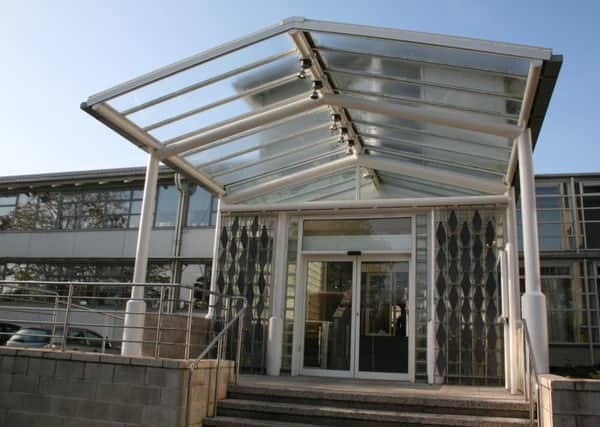Bonhomie gives way to bluster in tapestry challenge


He was commenting before his council approved savings of around £11million in a revenue budget worth £263million in the coming year and a provisional £1.3billion over the next five years. Members also endorsed the allocation of more than £300m in a 10-year capital programme for investment in new schools, flood defences and infrastructure projects.
He said that earlier last week he had discussed his ruling administration’s budget proposals with Conservative opposition group leader Michelle Ballantyne.
Advertisement
Hide AdAdvertisement
Hide Ad“I’m delighted that we agreed on 99.9% of our proposals in what we both acknowledged were challenging financial circumstances,” said Mr Parker.
Councillor Ballantyne concurred. “As a group we support this budget as a whole … there are some really good decisions in here and, like Mr Parker, we recognise we need to make changes in the way we do things,” she said.
However, both acknowledged there was one issue on which they emphatically did not agree – the allocation of £3.5m in the 2016/17 capital programme and £209,000 in revenue for annual loan repayments – for the creation of a visitor centre for the Great Tapestry of Scotland at Tweedbank.
And the bonhomie of their opening remarks soon evaporated when Mrs Ballantyne moved an amendment that these cash allocations should be scrapped.
Advertisement
Hide AdAdvertisement
Hide AdUnaware that the Scottish Government had ordered a revised business plan for the project, Mrs Ballantyne waded into the business case which had informed the SBC administration’s decision to support the Tweedbank site.
She even claimed she had taken the document to her bank manager who agreed it did not “stack up”. She challenged the visitor numbers and income assumed in the business plan and feared the council could be left with “revenue consequentials”, at the expense of essential services, for years to come.
“Most importantly, I have yet to meet anyone outside this chamber who supports it,” she added.
Councillor Stuart Bell (SNP), executive member for economic development, said the Conservative group lacked ambition and wanted to drive down public services.
Advertisement
Hide AdAdvertisement
Hide Ad“We are doing this to create a hub at the rail head which will bring tremendous added value to our region with an annual economic dividend to the Borders of £850,000.
“We want to tap into the thousands of visitors to Edinburgh who are looking for a day out and Tweedbank is the obvious location to achieve that.
“Our recent household survey showed that the number one priority of Borderers is to grow the economy and create jobs. This administration shares that ambition, even if the Conservatives do not.”
Councillor Sandy Aitchison (Borders Party) stressed the educational value of the tapestry for Borders schoolchildren, while Willie Archibald (SNP) accused the Conservatives of “running away from the heritage of the Borders” by rejecting a cultural attraction of international significance.
Advertisement
Hide AdAdvertisement
Hide AdCouncillor Catriona Bhatia (Lib Dem) noted that many Conservatives who now opposed the tapestry had also been against the return of the Borders Railway which had been a “phenomenal success” and beyond the expectations of the original tapestry business case which, she said, should be “refreshed accordingly”.
Summing up, Ms Ballantyne said to infer her group’s opposition to the Tweedbank site was idealogical was “insulting nonsense”.
On a division, her amendment was defeated by 21 votes to 10, with Independent councillors Watson McAteer, Stuart Marshall and Rory Stewart supporting Mrs Ballantyne. Tom Weatherston (Con) defied the party whip and voted for the budget.